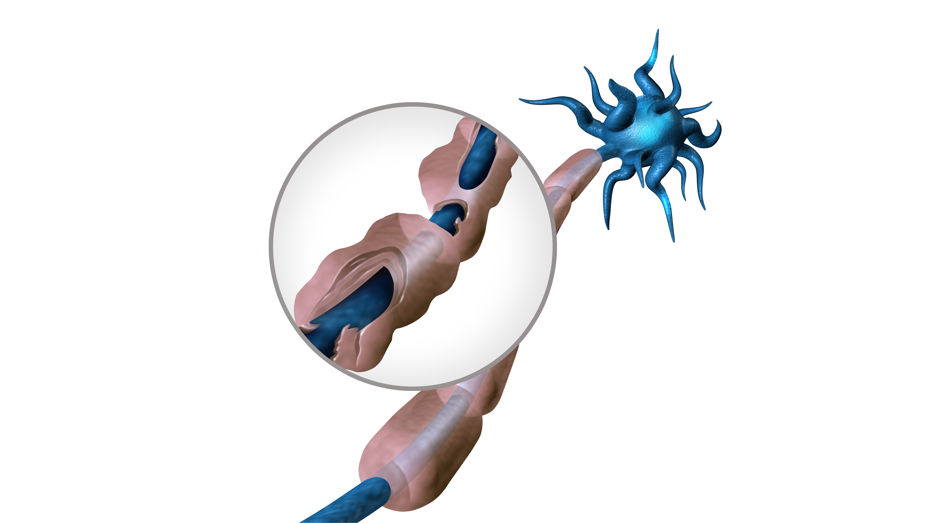
Multiple sclerosis (MS) is a neurological condition that affects the nerves in the brain and spinal cord (the central nervous system). Not all people with MS will experience the same symptoms.

In MS, the body's immune system mistakenly attacks the myelin tissue, whose function is to protect the nerve fibres in the central nervous system and to ensure smooth transition of messages between the brain and the body. These attacks damage the protective myelin tissue (called demyelination) and nerve cells which then interferes with messages getting through properly.
The damage or scarring (sclerosis) can happen in different parts within the central nervous system and the symptoms a person gets depends on location or how many lesions they have. The common physical symptoms are vision disturbances, balance difficulties and dizziness, fatigue, bladder/bowel continence issues and stiffness and/or spasms.
MS can cause different kinds of bladder and bowel problems. These problems are often linked to lower limb dysfunction, so mobility issues are often accompanied by additional bladder and bowel continence issues.
Bladder Problems
When the nerve is damaged, transmission of signals between the brain and the part of the spinal cord that controls the urinary system becomes more difficult. MS affects bladder storage and emptying. The nerve damage can result in an overactive bladder (OAB). An overactive bladder is common, where the nerve damage results in frequent, uncontrollable urges to empty, even though the bladder isn't full.
Incomplete emptying of the bladder may occur or a lack of coordination during emptying, called detrusor (bladder muscle)-sphincter dyssynergia. The muscles in the pelvic floor and the sphincter muscle around the urethra contract spontaneously during emptying. This closes the urethra, resulting in the bladder not being properly emptied. The bladder and sphincter muscles can become weak, which can lead to a mixture of problems called overflow incontinence.
As the pathway or progression of MS is unpredictable, bladder function might also vary being more problematic in some periods, relatively easy in others. However, it is still very important to treat bladder emptying problems consistently as residual urine can lead to urinary tract infections.
Bowel Problems
Constipation, diarrhea & loss of control are the most common bowel problem in MS.
As bowels are controlled by the same neural pathways as the urinary system, they can also be affected by MS The disruption of messages between the brain and various parts of the digestive system causes problems with slower passage of food through the intestinal tract, reduced sensation in the rectum and control of the anus muscles, which can lead to problems such as constipation and incontinence.
Bladder & Bowel Problems
Both bladder & bowel function are affected by the damage to nerves in the central nervous system and their symptoms may have some underlying correlation. Bladder problems should always be treated initially and then bowel symptoms alongside, as problems such as constipation can affect bladder emptying or lead to urgency.